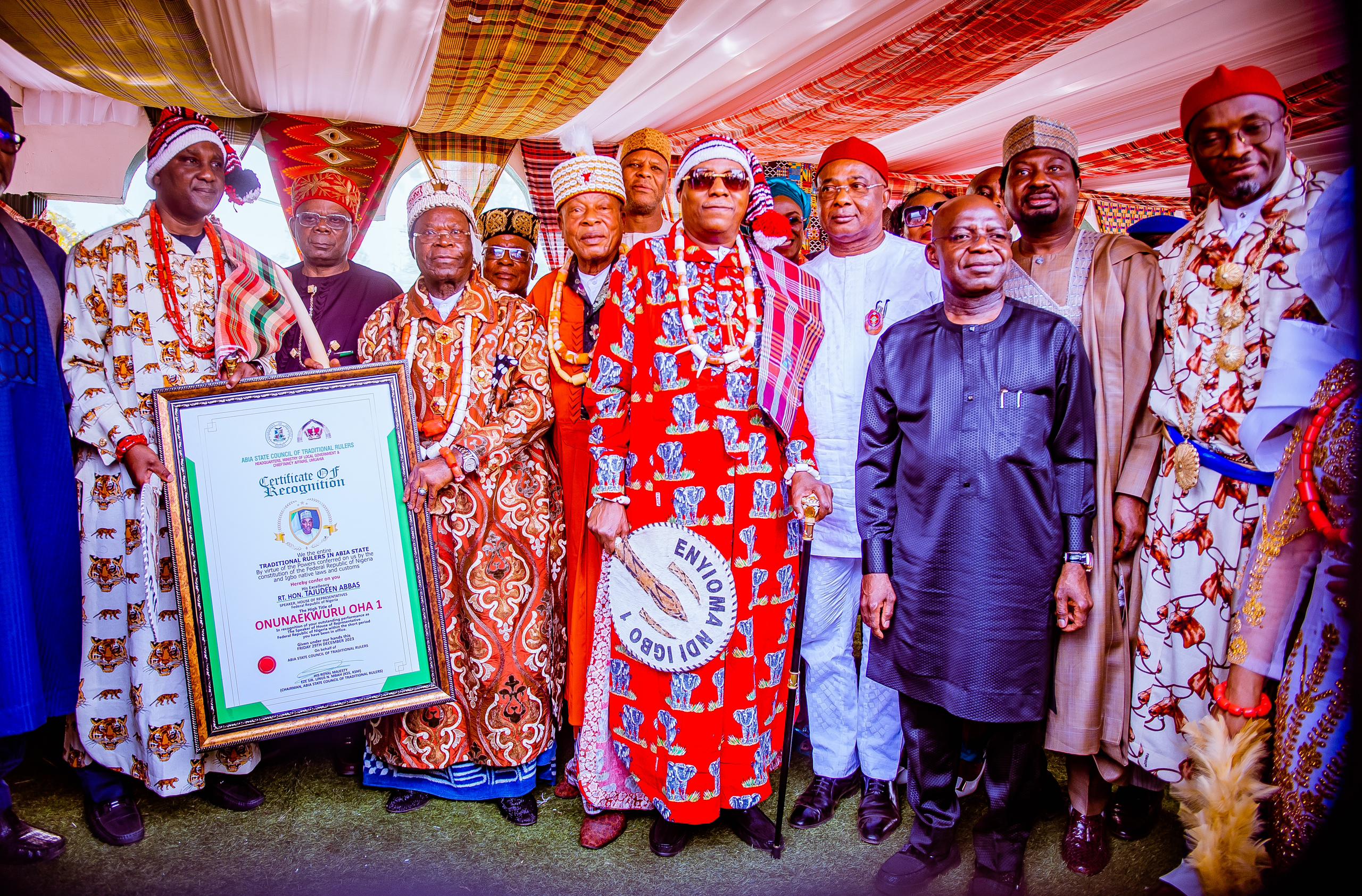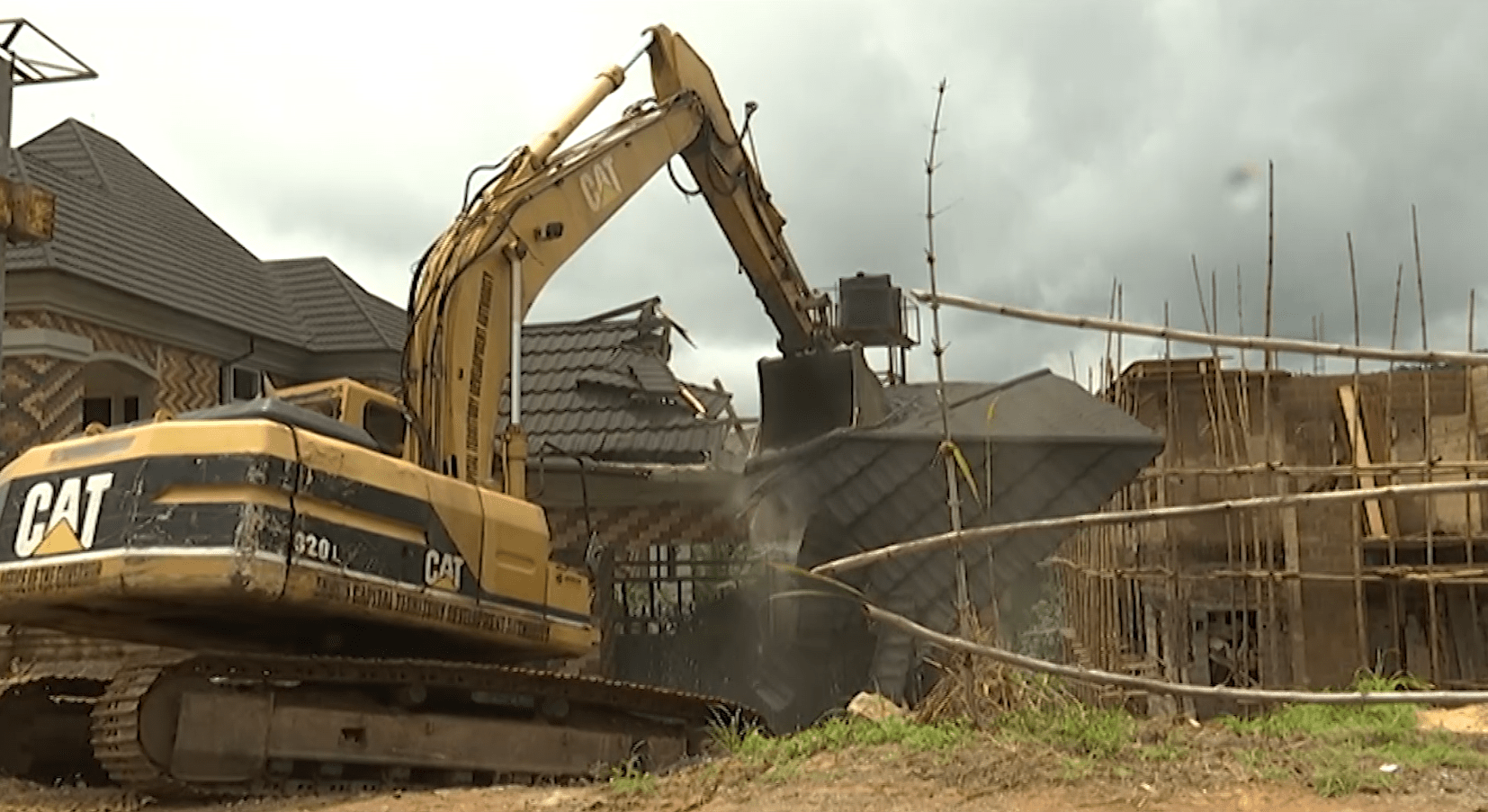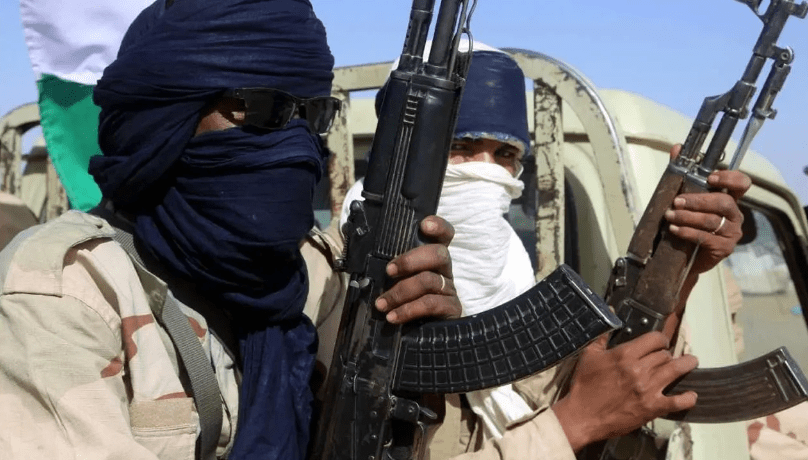The Speaker of the House of Representatives Rt. Hon. Abbas Tajudeen is telling the leaders from the Southeast region to engage the government in addressing the legitimate grievances of their people.
Speaker Abbas, in his address at the launch of the Peace in the South East Project, an initiative of the Deputy Speaker, Rt. Hon. Benjamin Okezie Kalu decried that despite South-East’s economic strengths, agitations in the zone had caused it colossal losses.
Speaking on Friday at the event held in Bende, Abia State, Kalu’s hometown, Speaker Abbas stated that the peace in the South-East is, by extension, the peace and progress of the entire Nigeria.
The Speaker noted that the PISE-P was borne out of his deputy’s deep love for the zone and profound concern over the rise of insecurity, “which has cast a dark shadow over the region.”
He lamented that the wave of insecurity “continues to cripple daily life and significantly paralyse socio-economic endeavours, in a region whose people are renowned for their resourcefulness and economic enterprise.”
Speaker Abbas, therefore, described Hon. Kalu’s project as a “historic and patriotic endeavour.”
The Speaker said: “It may be recalled that between 1956 and 1965, the then Eastern Region was regarded as the fastest-growing economy in Africa and Asia. Indeed, the South-East has remained an economic powerhouse in Nigeria and Sub-Saharan Africa, leading in trade and commerce.
“From Aba to Adamawa and Enugu to Europe, Igbos are known to be entrepreneurial, resourceful, peace-loving, savvy, tenacious, and peace-loving. That is the character of the Igbos. That is who you are. Three of your cities, Aba, Onitsha, and Nnewi, are among the most industrialised in Nigeria.
“A sizeable chunk of the major investments in many parts of Nigeria are Igbo-owned. Your contributions to the Nigerian economy, either through imports, business investment, or diaspora remittances, among others, are indisputable.
“The contributions of the Igbos are apparent not only with regard to the economy but also in all fields of human endeavour, including literature, academia, the creative industry, and many more.”
Speaker Abass said unfortunately, with its rich history, vibrant culture, and significant contributions to Nigeria’s economic and social fabric, the region had faced numerous challenges in recent years.
“These challenges have often manifested in the form of separatist agitations, unrest, and terrorism. The consequences on both lives and property have been colossal,” he said.
To address these issues effectively, the speaker said the stakeholders must first understand their root causes.
Speaker Abbas noted: “These underlying causes include the sense of marginalisation and the feeling by many people in the South-East that their voices are not heard and their concerns are not adequately addressed in the national discourse.
“Secondly, the general economic challenges and the attendant lack of sufficient economic opportunities fuel frustration and make the youth more susceptible to radical ideologies. This is true for most parts of Nigeria, not just the South-East.
“Additionally, we cannot ignore either should we be ashamed to acknowledge the historical context, including memories of past conflicts and perceived injustices that continue to influence the current sentiments in the region.”
The Speaker noted that Nigeria is a tapestry of over 250 ethnic groups and multiple religions. While being the country’s greatest strength, he said the diversity also poses significant challenges and can sometimes lead to division and conflict.
“The task before us, therefore, is not just to coexist but to thrive in our diversity,” he stated.
Speaker Abbas said most importantly, the challenges in governance, including corruption and ineffective administration, “have exacerbated the situation, leading to a lack of trust in the authorities.”
The Speaker stated that he believed strongly PISE-P could foster peace, stability, and sustainable development in the South-East and restore the vibrancy and prosperity of the people.
He noted that for peace to be sustainable, a multi-faceted approach, as clearly outlined in the seven pillars of the project, must be adopted.
Speaker Abbas said: “The first is inclusive governance, which is crucial in ensuring that the people of this region feel adequately represented at all levels of government and decision-making processes.
“Secondly, it is important to emphasise that peace is a sine qua non for development. The development craved by the people of this region can never be achieved in the absence of peace.
“History has taught us that violence, carnage, and mayhem have never resolved conflicts. This underscores the need for open and honest dialogue and reconciliation between the government and community leaders and between different ethnic and social groups in the southeast.
“Dialogue should address grievances, foster understanding, and promote reconciliation. Also, I call on the political leaders from the South-East to engage the government in addressing the legitimate grievances of their people.”
The Speaker stated that it was only when peace and order had been restored that the focus could be on creating economic opportunities, particularly for the youth.
At the National Assembly, Speaker Abbas said the lawmakers would ensure that funding was provided for investment in infrastructure, support for local businesses, and the creation of job opportunities.
“In a few days, the National Assembly will pass the 2024 budget. Special care has been taken to ensure a balance in the distribution of infrastructure projects across the six geopolitical zones. We have a duty to rebuild this region and accelerate its recovery towards becoming the economic powerhouse it has been.
“Only a few days later, the House of Representatives passed the South East Development Commission bill, sponsored by Hon. Benjamin Kalu. When assented to by the President, the Commission will support the reconstruction and rehabilitation of infrastructure in the region.”
Another critical strategy for ensuring sustainable peace and development, according to Speaker Abbas, is educating the populace about the importance of unity and the dangers of division.
The Speaker added that the agitations in the South-East and other regions of the country could be greatly minimised through good governance and adherence to the rule of law.
“Legislators and all public officials, as well as traditional and religious institutions, have a role in building trust and stability through good governance,” he stated.
Signed:
Musa Abdullahi Krishi, Special Adviser on Media and Publicity to the Speaker, House of Representatives, Federal Republic of Nigeria.




